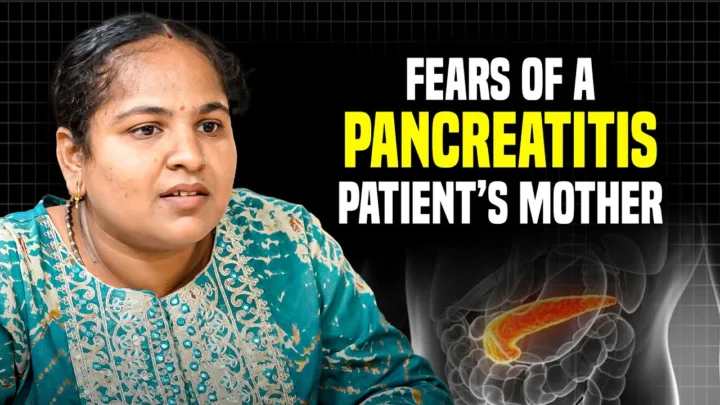I, Vaidya Balendu Prakash, a traditional Ayurvedic practitioner, have witnessed a disturbing trend in recent years: a significant rise in pancreatitis among children. Pancreatitis, an inflammation of the pancreas, was once considered a disease of adults, with an average onset age of 24. However, I now see children as young as two and a half years old suffering from this condition. Even infants are not immune.
The Hyderabad Twins
I vividly recall the case of twin boys from a Muslim family in Hyderabad. Both were diagnosed with pancreatitis. Their father, distraught and desperate, brought them to me after conventional treatments at the renowned Asian Institute of Gastroenterology failed to provide relief. Treating children poses unique challenges. Getting them to adhere to dietary restrictions and rest is no easy task. Yet, we began the treatment, and to our joy, the children responded well.
Restoring Confidence, Overcoming Fear
After 21 days of treatment, a significant milestone was reached. To restore the parents’ confidence and alleviate their fears, I decided on an unconventional approach. I asked the children what they wanted to eat. Hesitantly, they whispered “pizza.” Their father was aghast, but I reassured him. I took them to Domino’s Pizza and let them enjoy a non-vegetarian pizza. The father was overcome with emotion. He confessed that for three years, he had avoided even passing by the pizza shop, unable to bear the sight of something he couldn’t let his children eat. Witnessing his sons enjoying pizza brought him to tears. It was a powerful reminder of the emotional toll this disease takes on families.
Beyond Genetics: The Role of Environment
These twins, now years later, are doing well. This case, like many others, raises the question of genetics. While a genetic predisposition to pancreatitis may exist, I firmly believe that the environment plays a crucial role. I’ve observed a correlation between mothers who experienced anemia during pregnancy and the development of pancreatitis in their children. However, there’s another factor that I find even more alarming: stress.
Stress: The Silent Epidemic
Children today are subjected to immense pressure from a very young age. They are pushed to excel in academics, sports, and extracurricular activities. The carefree days of childhood are replaced with a relentless pursuit of achievement. This stress, I believe, is a major contributor to the rise of pancreatitis and other diseases in children.
The Bangalore Case: A Stress-Induced Condition
I recall a case in Bangalore where a young girl was brought to me with psychiatric problems and allergies. During our conversation, I discovered that she was staying up until 2 a.m. every night, driven by a need to top her class and outperform her friends. This competitive spirit, coupled with sleep deprivation, was taking a toll on her mental and physical health. After counseling her and addressing her sleep patterns, her allergies and psychiatric symptoms subsided.
The Pressure to Perform
The pressure to perform starts early. Children as young as six are enrolled in preparatory schools, where they are expected to conform and excel. Homework, tuition, and extracurricular activities leave little room for free play and relaxation. Parents, often driven by their own unfulfilled aspirations, push their children to achieve. This creates a stressful environment that can have long-lasting consequences.
The Jaipur Case: A Wake-Up Call
I treated a child from a family of doctors in Jaipur for pancreatitis. Despite a genetic predisposition, the child recovered after Ayurvedic treatment. However, he returned a few years later with a recurrence. I learned that the child was involved in numerous activities – swimming, cycling, tuition, and more. I had a stern conversation with the parents, emphasizing the need to reduce the pressure on their child. Thankfully, they heeded my advice, and the child has been healthy since.
The Need for Balance
We need to re-evaluate our priorities. Instead of focusing solely on academic or athletic achievements, we should prioritize our children’s overall well-being. A healthy diet, regular exercise, and adequate sleep are essential. We must also create a nurturing environment that allows children to be children – to play, explore, and develop at their own pace.
The Importance of Respecting the Body
If a child has already developed pancreatitis, it’s crucial to respect their body and avoid unnecessary stress. Just as we wouldn’t push a damaged car to its limits, we shouldn’t overburden a child with a compromised pancreas. We need to provide them with the time and space they need to heal.
Conclusion
The rise of pancreatitis in children is a wake-up call. We need to address the root causes of this alarming trend – stress, unhealthy dietary habits, and a lack of focus on overall well-being. By prioritizing our children’s health and creating a supportive environment, we can help them thrive and reach their full potential.






